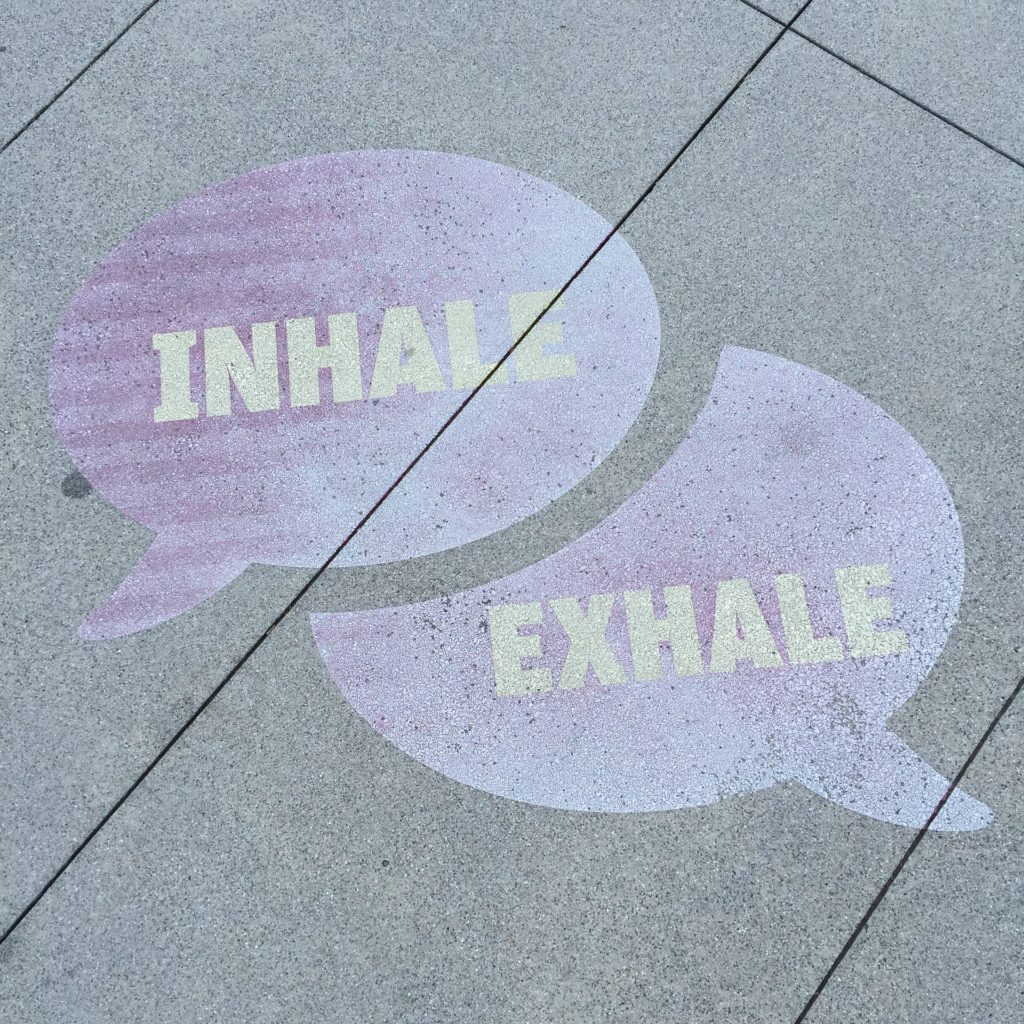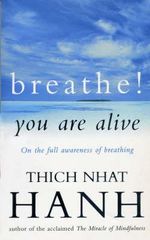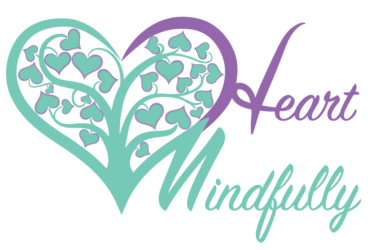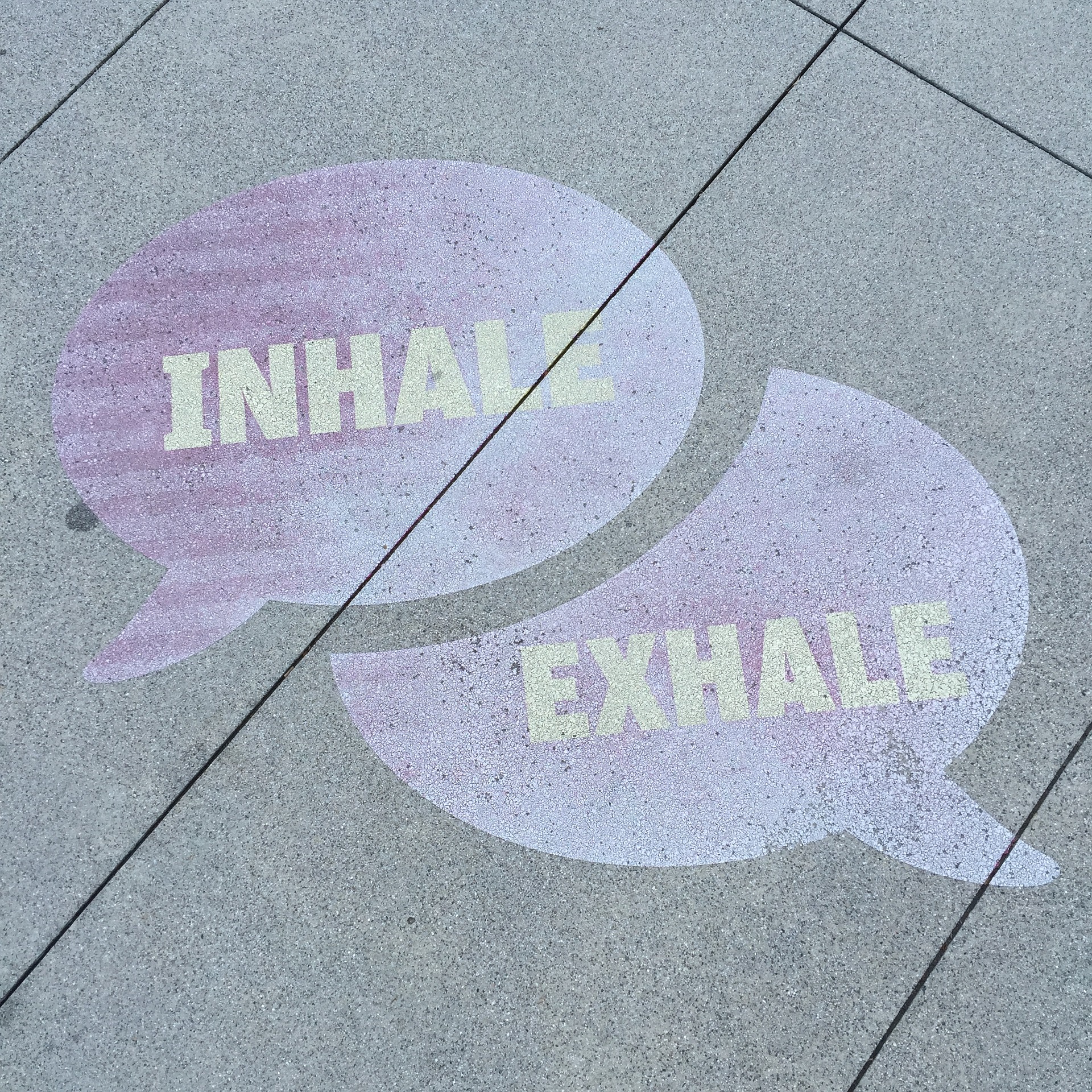Breathe and Be In the Present Moment

Do you ever find yourself rushing around, short of breath. Or find yourself overwhelmed randomly for no reason that you can pinpoint?
I wonder if you have ever thought of how your breath might be like during those moments.
Many times we can be super busy, and thinking about all of the things you need to do and make sure you don’t forget which takes you away from the present. This has a huge impact on how you feel. It also affects our physical well being.
Or you might find that you feel stressed or upset about a situation. What are you thinking about at that time? Be honest with yourself here. Usually your thoughts are likely to be focused on the future or the past. Unless you are feeling threatened in some way which is immediate and biologically programmed.
The value of being present can’t be emphasized enough. It has real benefits to our health, our mental well being. It is also linked with our self talk. When we engage in negative self talk, focus on the past or the future, we are not being present and giving all of our attention to this moment.
It’s possible to be in a state of calm more often than we realize.
Benefits of Slow Breathing
Lowered cortisol levels
Cortisol is related to high levels of stress. Which is handy where we are running away from some kind of threat, however when it’s ongoing these high stress levels, are not healthy for our physical systems. Our bodies are designed to respond to the stress at the time of threat, then calm down which in turn shifts the hormonal response from the fight or flight to a clamer state with sufficient dopamine, GABA, serotonin and oxytocin. When these are activate, we feel calmer and more peaceful. These hormones aren’t activated when cortisol is raised. This is why being in a state of calm is preferable for your physiological health and wellbeing.
Stabilises blood pressure and heart beat
The parasympathetic and sympathetic systems both work together with getting blood around the body. When breathing is fast it makes more blood pump around the body which isn’t a healthy way to function at the biological level. Breathing fewer breaths in a minute is more beneficial to these systems as they need to work less and allows your heart to beat less frequently and with less pressure to move the blood around.
Lowers anxiety
Simply by slowing down your breathing and bring yourself to the present moment, you shift your focus from anxiety contributing thoughts to the here and now.
Builds resilience when facing stress
By keeping present and breathing slowly, you can also be more level headed when managing increased stress. This allows one to operate with increased resilience to help get you through the stressful time. Resilience allows you to respond with less reactivity to stress with better coping strategies.
Enhances cognitive performance
When the body is tense, and functioning at a higher level of stress, the logical part of our brain is less activated. Instead the amygdala has increased control over the emotions, making the frontal lobe less responsive. By lowering your stress levels with slowed breathing and being present, it helps your frontal lobe function better so you can think more clearly and enhances cognitive performance.
Naturally relaxes your muscles
Slowing down your breathing helps your muscles relax naturally which also aids in lowering anxiety and stress and the hormone cortisol.
Link between Being Present and Mindfulness
Breathing and being in the present moment are closely linked with mindfulness. Mindfulness is a tool that can help one be focused on the present rather than allowing the thoughts that take us away from the present take over. When practicing mindfulness it can lead to lowered stress hormone cortisol. It also enhances self awareness and allows you to learn the skill of clearing your mind.
There’s many ways to practice mindfulness while being active or going about your daily activities. Here’s an example. As you make yourself a cup of tea or coffee, bring yourself to this moment by being more aware of what you are doing. We often go about doing our daily actions without any attention to what we are actually doing. So fill the kettle, press the boil button down and notice how it feels as you do this. Do you need much pressure to press it down? Next notice the steam rising as it’s nearly boiled. Also notice any condensation from the steam cooling. Not fill your cup with your choice of beverage ie coffee, tea, chocolate etc. Watch the water as it fills the cup. Notice the colours change from clear to your beverage choice.
Now notice how it changes as you add milk if you use it. Then as you drink it how does it feel on your palate? What’s the temperature. Watch the steam as it rises while you focus on your cup. when you notice any thoughts while practicing this, simply acknowledge it. That’s all. No negative responses towards the thought, just notice it and refocus back on your cup of tea/coffee beverage. What did you find happened for you while you practiced this activity? This is another way of practicing mindfulness through actions rather than sitting still and meditating.
Practicing mindfulness helps you connect with the breath and allows you to use the breath as anchor to being present.
Breathe and Be
Sometimes when we aren’t breathing calmly and slowly, we need to consciously learn how to do this to help maximise our ability to calm ourselves and be present.
As you take a breath in
- notice how the air feels on your nostrils
- Breathe in for 5 seconds.
- Hold for 2 seconds
- with your mouth slightly open breathe out for as long as you need to
- notice how the air feels as you breath out
- with your next breath in, follow the same process only notice how your body moves as you breathe in
- be aware of your torso moving, your chest rise and fall, your stomach move out and in.
- Release slowly
As you become more aware of your breathing and your body as it moves, notice how it makes you feel as you practice this purposeful breathing. This is being in the moment regardless of where you are and what you are doing.
You can do this anywhere. No one will be aware that you are practicing being present. It’s something you can take with you where ever you go.
Tips for Reminding Yourself to Breathe
I know you breath all the time right! Sure, without stating the obvious, this is correct. But have you ever noticed that when you stop and think about your breathing, you realise you haven’t been breathing slowly after all? And when you do slow your breathing down it feels really good yeah? That’s what our goal is today, to help you remember to stop and breath purposely.
A trick to help yourself remember to take a slow deep breath in is to connect it using a memory cue. A memory cue is something you link actions together.
For instance:
- Every time you look at your watch or a clock, or check the time on your phone, stop for a second and take a slow breath in, hold then release.
- Perhaps you look at your phone only infrequently during the day. When you do look at your phone, take in a deep breath.
- Maybe you can wear a special bracelet or ring – every time you look at it, that’s when you take a slow breath in.
- Every time you check your facebook/instagram/twitter account. Stop, Take a deep breath in, hold then release.
Free Guide
Remembering to be present can take practice and time. In order to help fast track this, you could consider doing a hypnosis on a regular basis to help retrain your mind. Hypnosis helps by guiding you through a relaxation process then gives you subconscious messages. As we usually function using only 5-10% of our brains it’s harder to consciously remember everything we need to do. Enter hypnosis which communicates directly to the subconscious. You can incorporate as an additional strategy to help relieve anxiety, stress and slow down your breathing.
Here’s a free guide to focus on slowing down your breathing.
Final Words
So if you find yourself feeling stressed, anxious, worried, or scared about something that’s going on for you, do yourself a favor and check in to what your breath is doing. Notice if it is fast or if it could be slower. Even if you think it is slow, make a conscious choice to slow it down.
If you can do this on a regular basis, who knows how much better you will feel and build on your resilience while having extra coping strategies to manage your responses to stress.
If you found this helpful or have experience in the benefits of being present share your comments below.





What a great article – I’d like to pass it to my daughter. Do you have any recommendations for apps that have guided breathing meditations? I’ve seen a few apps that might have them, but don’t want to try a whole bunch if you happen to have a recommendation. Thank you
Hi Kendra, That’s great that you want to pass it onto your daughter. I encourage mine to do this regularly too. It’s a practical skill to remind our children to do too. In terms of apps, I’m not sure if there makes any difference between countries. Here in Australia I refer my clients to download the smiling minds app and another one is the headspace app. I’m not sure if these can be used in other countries though. All the best ~kat
People do not realize how easily they can change their thoughts, feelings and energy, just by changing their physicality.
Tony Robbins talks more deeply about that. He says that if you are feeling down, start acting like if you are good and energized, and you will feel the energy arising within you.
Thanks for the post and reminding people why is it essential to breathe well.
I absolutely loved this article! I personally find slow breathing really does help with lowering anxiety. I do this just about everyday. Thank you so much for posting all of your insights. 🙂
Hi Emily, it’s great if you can keep being mindful in your intentions to breathe and work through the anxiety to bring you back to the present. ~kat
Awesome post! Thank you for your free guide and everything here. I am over stressed recently. I think I need to have some slow deep breath from time to time. I like the tips you mention here, I really need to have them. I will look at other articles you wrote here.
Thanks Fiona, I’m glad you find these tips helpful. ~kat
It is really helpful article! I just tried the slow breathing by myself and I am feeling great . The effect on me being calm is huge. As you mentioned in the article, the pace of our present life is pushing us to be in 24/7 rush. Knowing that you can do the deep breathing basically everywhere is an extra and important plus.
Is the usage of this method recommended just if we feel afraid or stressed, or do you suggest to use it in everyday life too? If yes, then how often would you suggest?
Thank you and well done! Your website is big inspiration for me in my present state.
Hi Julius, it’s helpful to practice slowing down your breathing daily and get into the habit of it regularly as this will help you build on your ability to manage stressful situations when they arise. We don’t learn a new language without practicing it over and over again hey :). It’s the same for slowing down your breathing and being present. It becomes a healthy habit if you continue to do this daily. All the best ~kat
Hi Kat,
This information is so precious to me. It is a timely reminder for me to slow down. I’ve been working nonstop this entire year so far!
I love the part where you say to be aware of our daily motions, when boiling water to make coffee. This is my daily routine. I will be sure to slow down and be mindful of these actions. And learn to enjoy the moments of sipping my coffee.
Hi Joo, mindfulness can be useful in a practical every day way :). Enjoy your coffee 🙂 ~kat
My life is like a rushing fast train which make me always feel anxious or stressed or even both. Since I work every day more than 16 hours I face such problems. I tried slow breathing as a treatment to make my body relax and have more focus when I need it. Your article is just amazing and pointed out so many benefits of slow breathing like lowering corisol levels and therefore lowering anxiety.
Breathing control can be good also as you mentioned to relax all our muscles which is proved by trial! I loved also the Tips for reminding ourselves to breath slowly and use it more often to help our bodies and mind to be healthier.
I loved your article and I am looking forward to reading more of your masterpiece posts!
Hi Mohammad, thanks for the lovely feedback. I hope you can find time to remember to breathe during your days and find a way to slow down for your own peace of mind and reduction of stress. All the best ~kat
Great Article! I suffer from anxiety and panic attacks.I’ve noticed that unfortunately the younger generation seem to suffer from this too, I hope they come across this article too!. This was just the reminder I needed to take things slow and breathe every time I’m feeling overwhelmed. Thank you so much!
Hi Cynthia, yes unfortunately anxiety has increased too much for many people, and in particular the younger generation. I hope you can remember to slow down, take time to breathe and bring yourself back to the present any time during your daily activities. ~kat
Very great post here and precious post here!!
Hi Kat, thank you for sharing that!! I learned so much through your post. I have learned in the past that slow breathing allows more oxygen to be released into our lungs and generally contributes to our health, and I have adopted a habit every morning to do so. But for some time now I’ve been off. But your article gave me more motivation. In addition, I have just learned that this can reduce anxiety and that we can get into the habit of doing it at any time and anywhere.
All the best!
Cool article Kat. Good thing is, I was able to relate on taking a deep breath before checking on mobile phone. I always do that. It really helps a lot. I learned to be mindful when things are going restless and crazy. Then I just stop, retreat and pose for a while. Deep breathing is what I do best! Haha… Thanks for sharing your thoughts on this.
Thank you for sharing a great article, I really enjoyed reading it.
I have some friends who I feel can really benefit from reading this article as they seem to be stressed all the time. In my opinion, these friends and most other people need to “re-learn” how to breathe again.
As children we breathe naturally and fully however when we get older we are in so much rush we learn to take shallow breaths and not deep slow breaths all the way down into our stomach as we should. By consciously taking slow deep breaths and being mindful leads to a much healthier life.
I love your trick of remembering to take a slow deep breath by connecting it to a memory cue.
Great site… keep up the good work!
Such an inspiring article!
Believe it or not, it made me feel better just by reading it, as I’m sure, it does the same thing for all of your readers.
Nowadays, the majority of people are over-stressed on a daily basis. And it’s understandable considering how busy life has become.
And somehow we tend to forget that even controlling the way we take a breath can have a possitive impact on us.
These are very helpful tips you’re sharing here, I’ll do my best to follow them every time I feel a bit down.
Thank you so much for sharing them.
And keep up the great work you’re doing, it’s more than appreciated!
Hi Boby, what a lovely comment, thanks for sharing your thoughts and feedback. I’m glad to hear that you found it helpful and relaxing for you to read it as you took a few moments out of your day to spend reading this post. Blessings ~ kat